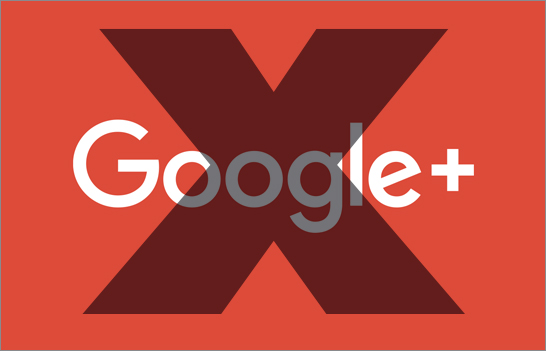Google+ Social Media Profiles To Go the Way of Friendster
Social media platforms come and go. Some stick. Others don’t. And much like Friendster which launched in 2002 and shut down in 2015, Google+ profiles are going away.
Google+ did not achieve broad consumer or developer adoption, and has seen limited user interaction with apps.
Ben Smith, Google fellow and vice president of Engineering, shared that “The consumer version of Google+ currently has low usage and engagement: 90 percent of Google+ user sessions are less than 5 seconds.”
Why did Google+ fail as a social media platform?
In the post, Should Lawyers Google+, an article I wrote for The Legal Intelligencer Blog in August 2011, I reported that, as of that date, Google+ had reached 25 million unique visitors and was a fast-growing social media platform. However, I advised lawyers and legal marketers that Google+ was not yet a proven social media tool for networking or business development. My thoughts about the platform never changed.
I became leerier of Google+ as time passed and ended up blocking more profiles on the platform than any other social media outlet: 376 to be exact. It became a necessary evil to check the profile regularly and to make sure others were not creating fake profiles using my image. In August 2013, I published a blog for The PR Lawyer about my experience with profile spoofing and using my headshot in their profile.
The demise of Google+ comes after it was discovered that the social media platform exposed data of up to 500 thousand users. The Wall Street Journal reported that Google exposed user data and feared repercussions of disclosing the data breach to the public.
While Google found the data breach in March 2018, they did not disclose the vulnerability for fear of regulatory scrutiny or damage to its reputation.
After it was reported that Google exposed user data, Morgan & Morgan and the Arnold Law Firm filed breach claims against Google+. This is the second time in two months that these firms have filed breach claims against a social media platform. In September the firms sued Facebook after it announced that is discovered a breach affecting 50 million accounts.
For those readers wondering why Google+ got away with not informing users of the data breach for so long in light of General Data Protection Regulation (GDPR), the regulations didn’t go into effect until May 25, 2018, nearly two months after the Google+ data breach.
What remains unknown is the extent of the public relations fallout, if any, from Google’s failure to disclose that it exposed the private data of hundreds of thousands of users. What they were afraid of in March 2018 won’t go away – failing to be forthright with users will and should cause reputational damage with users.
While time will tell how Google’s failure to disclose the data breach to its users will play out, it’s important for them to learn from Facebook’s 2018 Cambridge Analytica Scandal , expertly detailed by TechRepublic:
SUMMARY: What is the Facebook data privacy scandal?
The Facebook data privacy scandal centers around the collection of personally identifiable information of “up to 87 million people” by the political consulting and strategic communication firm Cambridge Analytica. That company—and others—were able to gain access to personal data of Facebook users due to the confluence of a variety of factors, broadly including inadequate safeguards against companies engaging in data harvesting, little to no oversight of developers by Facebook, developer abuse of the Facebook API, and users agreeing to overly broad terms and conditions.
In the case of Cambridge Analytica, the company was able to harvest personally identifiable information through a personality quiz app called thisisyourdigitiallife, based on the OCEAN personality model. Information gathered via this app is useful in building a “psychographic” profile of users (the OCEAN acronym stands for openness, conscientiousness, extraversion, agreeableness, and neuroticism). Adding the app to your Facebook account to take the quiz gives the creator of the app access to profile information and user history for the user taking the quiz, as well as all of the friends that user has on Facebook. This data includes all of the items that users and their friends have liked on Facebook.
Should you delete your Google+ profile now?
What I’ve decided to do is to download my Google+ data and archive it for the time being.
I’m not going to delete my Google+ account just yet. Instead, I’ll leave it up for the SEO value it has but I won’t spend time adding content to it since Google+ will go away by the end of August 2019. I’ve never used it for personal social media networking or sharing, so there is little data there to be compromised and nothing unique to be mined. In fact, while I have a connected gmail account, that is only used for me to receive promotions and consumer subscription alerts.
If your Google+ profile is used for social sharing and connecting, and your gmail account is your primary personal email account, it makes sense to delete your Google+ profile now. If, like me, you use Google+ as a tool for added SEO, perhaps you want to leave well enough alone and delete it at a later date.
Worth reading or bookmarking is CNET’s instructions on how to delete your Google+ account.
If you decide not to delete your Google+ profile just yet, don’t get complacent. Keep an eye on your profile and on the Google+ data breach story in the event that more was compromised that has been reported to date.


